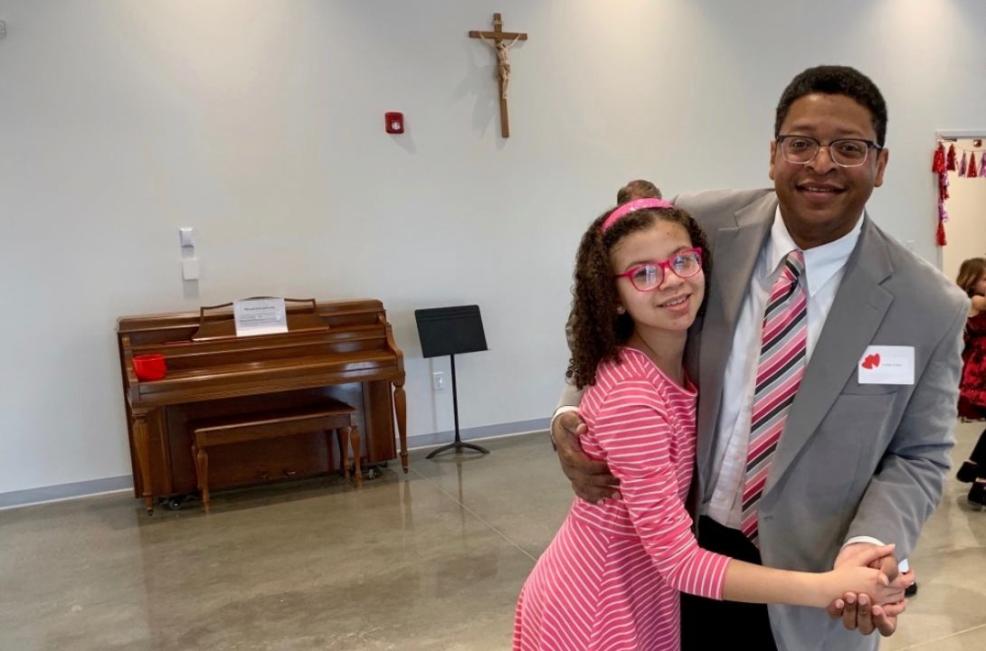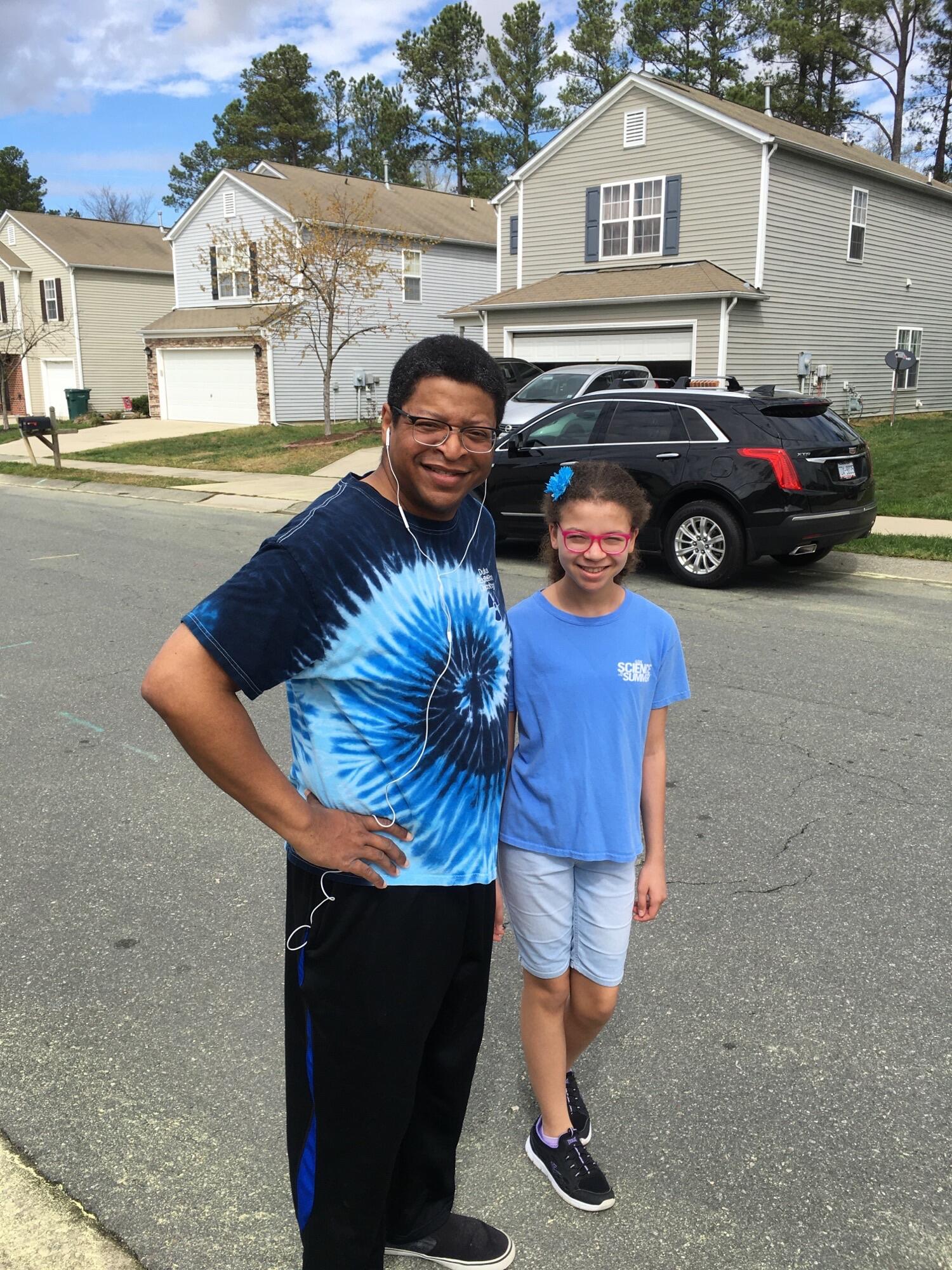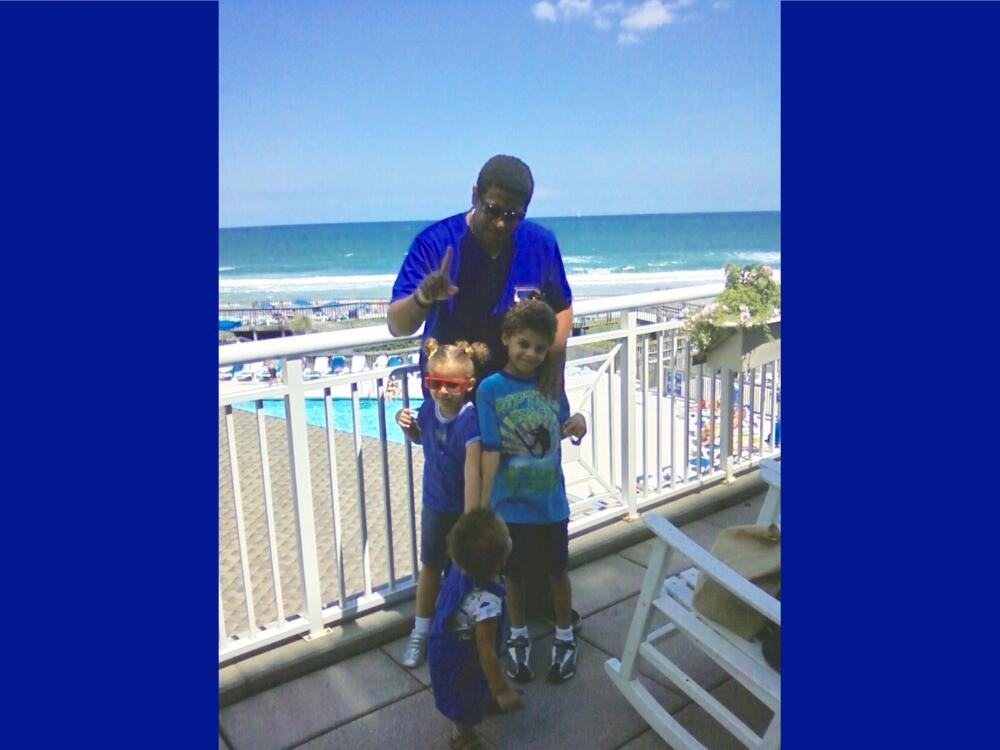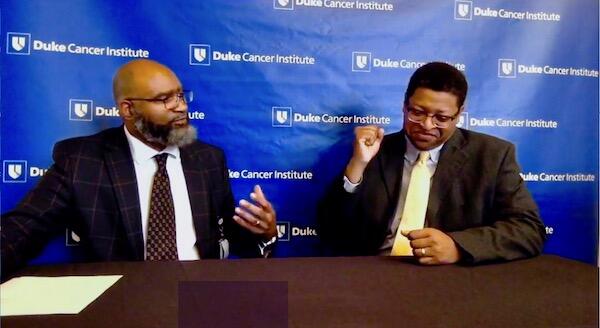Last month, Tristan Evans, 50, took a few turns around the dance floor with his daughter Janelle, 12, at a sweet Valentine’s father-daughter dance hosted by their local church homeschool group. Celebrating life with someone dear to his heart. On Saturday, March 21, Evans walked around his neighborhood with Janelle for a cause dear to his heart — colorectal cancer awareness.
An eight-year colon cancer survivor, the husband and father-of-three was one of many “virtual” walkers and runners who participated in the seventh annual Duke CRUSH Colorectal Cancer 5K Walk/Run, held this way for social distancing due to COVID-19 concerns.
Evans, the first one in his family to be diagnosed with any cancer, was blindsided by a diagnosis of stage 3C colon cancer when he was only 42.
He’d thought he wouldn’t need a colonoscopy until he was at least 50. (The American Cancer Society now recommends screening all patients of average risk, beginning at age 45, while the National Comprehensive Cancer Network guideline starts at age 50.)
“If I had waited that long, I wouldn’t be here talking to you,” Evans shared.
Over the course of four years, he’d ignored the occasional symptoms of pain in his abdomen, figuring he ate something bad or didn’t hydrate enough. He’d walk it off. Push through the hurt.
It took shooting pain, noticeable blood in his stool, and chills for Evans to consider seeing a doctor. When he did seek care, at the Holton Wellness Clinic (a joint program of Lincoln Community Health Center and Duke Community Health), family medicine nurse practitioner Virgil Mosu, FNP-C, first sought to rule out an internal hemorrhoid or diverticulitis (an infection in the intestine).
Ultimately, Mosu said Evans was down to two options: a take-home colorectal cancer test kit or a colonoscopy to look for abnormalities in the colon. Evans went with the colonoscopy because he wanted answers as soon as possible and didn’t want to risk any mistakes with the home test. He was referred to gastroenterologist John T. Geneczko Jr, MD.
“I vividly remember, before I went under sedation, having a very jovial conversation with my GI doctor,” said Evans. “As I was coming out of sedation I looked at his face and I thought, “Something doesn’t seem to be right.” He was very straight-faced and I knew he was about to give me some bad news.”
As it turned out, Evans wasn’t “average risk.”
An Unexpected Diagnosis
Geneczko told Evans he had Familial Adenomatous Polyposis (FAP), a rare inherited syndrome that causes hundreds of polyps to form in the colon and rectum. According to the American Cancer Society, only 1 out of 100 people with colon cancer have FAP — those with the classic form are likely to develop cancer before age 50.
As Evans understood it, “If my large intestine was turned inside out, it would look like it had a case of the measles.”
Even more seriously, Geneczko found two cancerous tumors — one the size of a golf ball — in Evans’ sigmoid colon, which had already started to penetrate into the muscle wall of his GI tract and invade his lymph system.
Most colon cancers start out as polyps (also called adenomas). During a colonoscopy, a long flexible scope with a lighted camera winds through the colon and looks for abnormalities such as polyps in the inside lining of the colon and removes them before they have the chance to become cancerous.
“Dr. Geneczko said I was probably going to lose a half to all of my large intestine,” recalled Evans. “So, you take somebody who has never had any major surgery and say that…well the hair on the back of my neck just kind of stood up and the first thing I thought about is, “Can you even live without your large intestine? How is that going to play out?””
Evans was ultimately referred to surgical oncologist John Migaly, MD, GI oncologist John Strickler, MD, and radiation oncologist Brian Czito, MD.
Evans credits his “head coach” Jesus Christ, “assistant coach” Michele Evans (his wife), and “some of the best physicians and support staff” at Duke, for defeating cancer. In his blog TeamTristan: For the Greater Glory of God!, he likened cancer to a force nearly as strong as Satan.
“Every darn day recently is a fight of some sort with a very powerful enemy only second in strength to Satan himself,” Evans wrote on June 24, 2012, after a six-month whirlwind of radiation therapy, oral chemotherapy, recovery, and surgery to remove his entire intestine and create a diverting loop ileostomy and J-pouch. “The skirmishes can range from trying to stay hydrated to managing pain; trying to stay coherent when in fact I’ve been doped up on every narcotic under the sun, to keeping a positive outlook on things when I can’t even pick up my baby for a hug because he weighs more than ten pounds; and keeping contact with my wife and kids even though the medications and pain either send me into pockets of despair and drowsiness or irritability and restlessness. It takes a lot to be in the place I am now, but I’m still in the fight – I think!”








